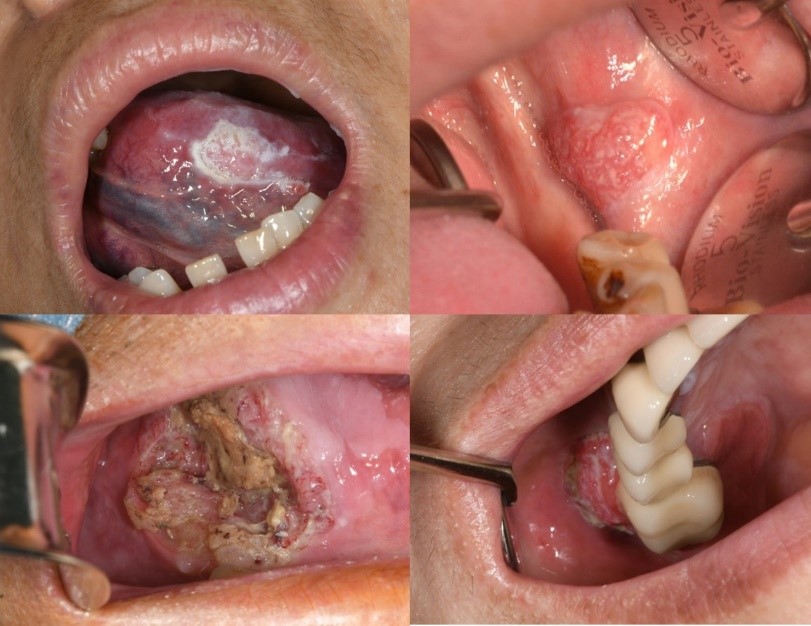Betel nut chewing is associated with oral cancer.
In Taiwan, betel nut is closely related to oral cancer. Most patients (approx. 90%) with oral cancer have the habit of chewing betel nut.
In addition, buccal mucosa cancer in Taiwan accounts for more than half of all oral cancers due to chewers' habit of placing the betel nut quid between gums and mucous membranes during chewing, and the incidence of buccal mucosa cancer is not the highest in non-betel nut chewing areas, indicating how harmful betel nut can be. For this reason, we have to call betel nut-related oral cancer "betel nut cancer." With the growth of betel nut chewers, the incidence and mortality of oral cancer are also on the rise. The severity of its harm cannot be ignored.
How does the betel quid cause cancer?
There are several theories as to how areca nut causes cancer. The first theory is that areca nut itself can initiate cancer. Using animals as models, some researchers have shown that the betel quid or its extract can cause local tumor changes by putting or locally applying it to a place in the mouth (cheek).
Betel nut contains polyphenolic chemicals that, in alkaline (mixed with slaked lime) conditions, produce oxygen-containing free radicals that can cause cancer. According to research conducted in 1993 by the Dental Department of National Taiwan University Hospital, areca nuts, and betel pepper leaves (or betel pepper fruits) have a genetic toxicity, cell toxicity, and carcinogenic process can be thought of as a series of genetic variation.
The second theory is that areca nut can promote the growth and expansion of cancer. In vitro experiments by foreign academics have shown that betel nut has the ability to promote cancer, and mice fed with betel nut can also see its role in promoting the formation of oral cancer.
A test on cancer initiation - cancer promotion mode performed in 1990 by the National Cheng Kung University Hospital dental department found that the betel quid in Taiwan has the ability to promote cancer locally, and that areca nut fiber and its cold extract has cancer-promoting effects.
According to a study by the Kaohsiung Medical University department of dentistry, arecoline application can increase the number of cheek pouch carcinomas in hamsters. These studies have shown that betel nut sold in Taiwan is highly likely to initiate cancer and promote its growth.
Another possibility is that areca nut changes the structure of local oral tissues, leading to atrophy of the epithelium, accumulation of submucosal collagen fibers, decreased blood flow, and vitrification of submucosal tissues, so as to make the patients suffer immensely and never recover from "oral submucous fibrosis" with normal mouth openings. The patient's local tissue resistance and immunity are greatly reduced, which is conducive to the play of other carcinogenic substances, and thus gradually transforms into oral cancer, so it can be considered as a precancerous lesions of the mouth.
Chewing betel nut induces cancer.
One of the most frightening characteristics of “betel nut oral cancer” is the high incidence of second primary cancer, probably due to the diffuse nature of areca nut in all areas in contact with it.
For example, a betel nut chewing patient developed right buccal mucosa cancer, but after extensive resection with no recurrence died of left buccal mucosa cancer 3 years later (this case is not rare). The second primary cancer site includes the pharynx, hypopharynx, larynx and esophagus besides the oral cavity. The unusual white spot changes in the oropharynx and hypopharynx can be found more in betel nut chewers than non-chewers, while the correlation between betel nut chewing and cancer in the throat, esophagus and other places is becoming more and more obvious.


